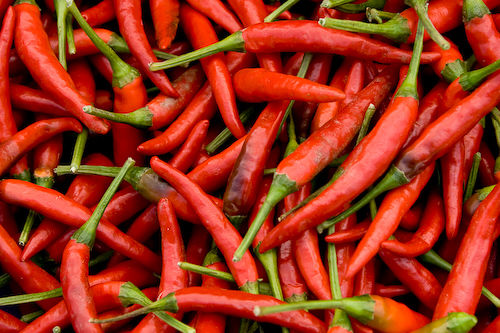Non organic farming question?

Image by hozae
Question by Shannon: Non organic farming question?
In what ways is non organic farming reducing environmental impact?
Organic has already been covered so that’s not necessary
Part of btec science course
Add your own answer in the comments!

what has it been covered by?
vanessa
February 2, 2014 at 5:43 am
sheep say Baa
Mr bean
February 2, 2014 at 5:58 am
Conventional agriculture today are adopting increasingly more sustainable agriculture practices to reduce agriculture’s detrimental impact on the environment and climate.
Some sustainable agriculture practices being used today are:
– zero burning, where a land is cleared (for replanting for instance) without burning any vegetation
– reduce agrochemicals use (which require fossil fuels to make) by practising crop rotation, intercropping, mulching, composting, mixed or integrated farming (crops + animals), agroforestry, integrated pest management (use of organisms to kill other organisms), and even biochar (charcoal from organic materials).
– more optimal use of water through drip irrigation
– minimum or zero tillage to reduce fossil fuel use as well as to reduce C loss from soils
– GM technology such as GM corn that could reduce pesticide use.
cbsteh
February 2, 2014 at 5:59 am
organic food is NOT healthier than conventional food. That’s an advertising ploy used to convince you to part with more of your hard-earned money for less food and less healthy food. It is true that organic foods are not contaminated by pesticides. But for the most part, neither is conventional food. It’s not like the farmers are spraying a gallon of methyl parathion on every head of lettuce before they ship it to the grocery store. Conventional farmers do not spray anything directly on produce. On the non-edible parts of the plant, sure; on the soil, definitely; but not on the edible parts of the plant. Also, most of these pesticides break down rapidly in the environment, leaving little if any residue on plants or their edible parts. For grains and other row crops, we don’t consume those directly – they go through several stages of processing (for example, wheat is threshed, then milled into flour, then baked into bread), and by the time they get to our table, the product is fundamentally changed, and herbicides just don’t survive all those processes. So much of this “concern” about herbicides in food is just undue alarmism. The fact is, there has never been a reported case of human death due to pesticide contamination of food. On the other hand, ORGANIC food DOES constitute a very REAL risk of death. Organic growers are not allowed to use man-made fertilizers. So they use manure (usually from cattle) instead. But cattle manure contains E coli bacteria. If you’re wondering where you’ve heard that term, E coli, before, that’s the bacteria that has caused several outbreaks of food poisoning in the US and around the world in recent years. If this stuff gets on produce, it makes people very sick, and some of them die. The last outbreak of E coli in the US (I think it was in 2006 or 2007) was traced to spinach from an ORGANIC grower, which was contaminated by cattle manure. That outbreak killed 6 people and made hundreds more sick….!!
Clara Molee
February 2, 2014 at 6:51 am